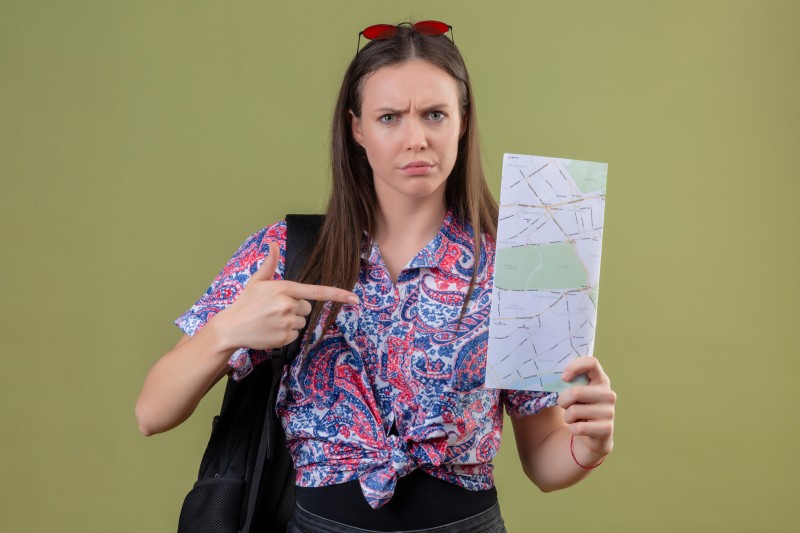India, with its vibrant culture, historic landmarks, and bustling markets, is a dream destination for travelers. However, its popularity also makes it a hotspot for scams targeting tourists. From the chaotic streets of Delhi to the serene ghats of Varanasi, scammers exploit distractions and unfamiliarity. By staying informed and cautious, you can navigate India safely and enjoy its wonders. This guide details common tourist scams in India and practical tips to avoid them, ensuring a memorable and hassle-free trip.
1. The “Friendly Local” Scam
In cities like Jaipur or Mumbai, scammers posing as friendly locals approach tourists with offers of help, such as directions or recommendations for shops. They may lead you to overpriced stores or pressure you into buying fake goods, like counterfeit Pashmina shawls or gems. For instance, a “guide” might insist on taking you to a “government-approved” shop, where prices are inflated, and commissions are pocketed.
How to Avoid It:
- Politely decline unsolicited help and use trusted resources like Google Maps or guidebooks.
- If someone is overly persistent, walk away or head to a crowded area like a market or café.
- Verify shop credentials independently, such as checking for government emporium certifications.
2. Fake Ticket and Tour Scams
At popular sites like the Taj Mahal or Red Fort, scammers sell counterfeit or overpriced tickets to tourists in queues. Similarly, fake tour operators in places like Goa or Kerala may offer discounted packages for boat rides or spice tours, only to deliver substandard experiences or disappear after payment.
How to Avoid It:
- Buy tickets online through official websites like the Archaeological Survey of India (ASI) or authorized platforms like Yatra.com.
- Book tours through reputable agencies with verified reviews on platforms like TripAdvisor.
- Check tickets for security features like QR codes or holograms, and avoid deals that seem too good to be true.
Discover More- Indian Visa Requirements: A Complete Guide for 2025 Travelers
3. The Taxi or Rickshaw Scam
Auto-rickshaw and taxi drivers in cities like Delhi or Bangalore often overcharge tourists or claim their hotel is “closed” or “unsafe,” redirecting them to commission-based accommodations. Some may take unnecessarily long routes to inflate fares.
How to Avoid It:
- Use app-based services like Ola or Uber for transparent pricing and GPS tracking.
- Agree on fares upfront if using non-metered rickshaws, or insist on using the meter.
- Confirm your hotel’s status independently via phone or email before trusting a driver’s claims.
4. The Fake Holy Man or Sadhu Scam
In spiritual hubs like Varanasi or Rishikesh, scammers dressed as sadhus (holy men) offer blessings or prayers for a fee, often pressuring tourists into donating large sums. They may claim the money supports a charity, which is rarely true.
How to Avoid It:
- Be skeptical of anyone requesting payment for spiritual services, as genuine sadhus rarely solicit money.
- Politely decline and walk away if pressured, or consult locals about legitimate ashrams or temples.
- Donate only to verified charities or temples with clear donation processes.
5. The Street Vendor Overcharge
In markets like Chandni Chowk or Colaba Causeway, vendors may quote exorbitant prices for souvenirs, spices, or textiles, claiming they’re “authentic” or “rare.” Some use sleight-of-hand tactics, like swapping high-quality items for fakes during purchase.
How to Avoid It:
- Research typical prices for items like silk sarees or handicrafts before shopping.
- Bargain firmly—start at half the quoted price and settle at a reasonable amount.
- Inspect items closely before paying, and avoid handing over cash until the transaction is complete.

6. The Fake Wi-Fi or SIM Card Scam
Scammers at airports or tourist hubs offer “free Wi-Fi” or cheap SIM cards that either don’t work or steal personal data. In places like Agra or Chennai, fake SIM vendors may sell invalid cards, leaving you disconnected.
How to Avoid It:
- Purchase SIM cards from reputable providers like Airtel or Jio at official stores or airports.
- Avoid connecting to unsecured public Wi-Fi networks; use a VPN if needed.
- Verify Wi-Fi networks with staff at hotels or cafés before logging in.
Discover More- List of Visa-Free Countries for Indian Citizens: A Complete Guide
7. The “Closed Attraction” Scam
In tourist-heavy areas like Udaipur or Amritsar, scammers may claim a temple or monument is closed due to a festival or repairs, offering to take you to an alternative site—often a shop or overpriced attraction.
How to Avoid It:
- Check attraction hours on official websites or apps like Incredible India.
- Ignore claims of closures unless verified by official sources or signage.
- Stick to your planned itinerary and avoid detours suggested by strangers.
8. The Fake Charity Scam
In places like Pushkar or Kolkata, scammers pose as charity workers, soliciting donations for fake orphanages or schools. They may use emotional stories or fake documents to guilt tourists into giving.
How to Avoid It:
- Research reputable NGOs like CRY or Goonj before donating.
- Avoid handing cash to individuals on the street; legitimate charities have online portals.
- Ask for official receipts or identification if approached for donations.
9. The Pickpocketing Distraction
In crowded areas like Mumbai’s local trains or Jodhpur’s bazaars, scammers work in teams to distract tourists with arguments, fake accidents, or spilled items, allowing accomplices to pickpocket valuables.
How to Avoid It:
- Keep valuables in a money belt or hidden pouch under clothing.
- Stay alert in crowds and avoid engaging with staged distractions.
- Use bags with zippers and keep them in front of you in busy areas.
Explore More- How to Ensure Your Elderly Parents’ Safety Before You Leave for a Vacation
10. The Fake Train Ticket Scam
At railway stations like New Delhi or Howrah, touts sell fake train tickets or claim to book waitlisted tickets for a fee, leaving tourists stranded or overpaying.
How to Avoid It:
- Book train tickets through IRCTC’s official website or app, or at authorized counters.
- Verify ticket details, including PNR numbers, on the IRCTC platform.
- Avoid middlemen offering “guaranteed” tickets, especially at stations.
General Tips for Safe Travel in India
- Learn Basic Local Phrases: Knowing simple Hindi or regional phrases can help you communicate and detect suspicious behavior.
- Trust Your Instincts: If something feels off, politely disengage and seek help from police or tourist helplines (e.g., India Tourism’s 24/7 helpline: 1800-11-1363).
- Blend In: Dress modestly and avoid flashing expensive items to reduce attention from scammers.
- Stay Informed: Follow travel advisories from the Ministry of Tourism or embassy websites for updates on local scams.
By staying vigilant and prepared, you can sidestep these common scams and immerse yourself in India’s rich tapestry of culture, history, and hospitality. Safe travels!




